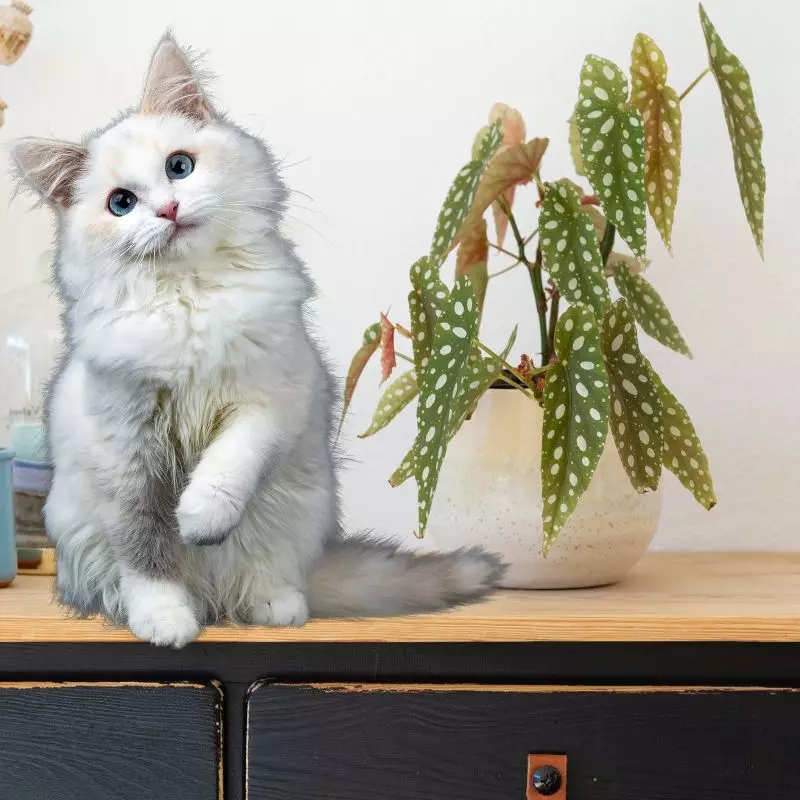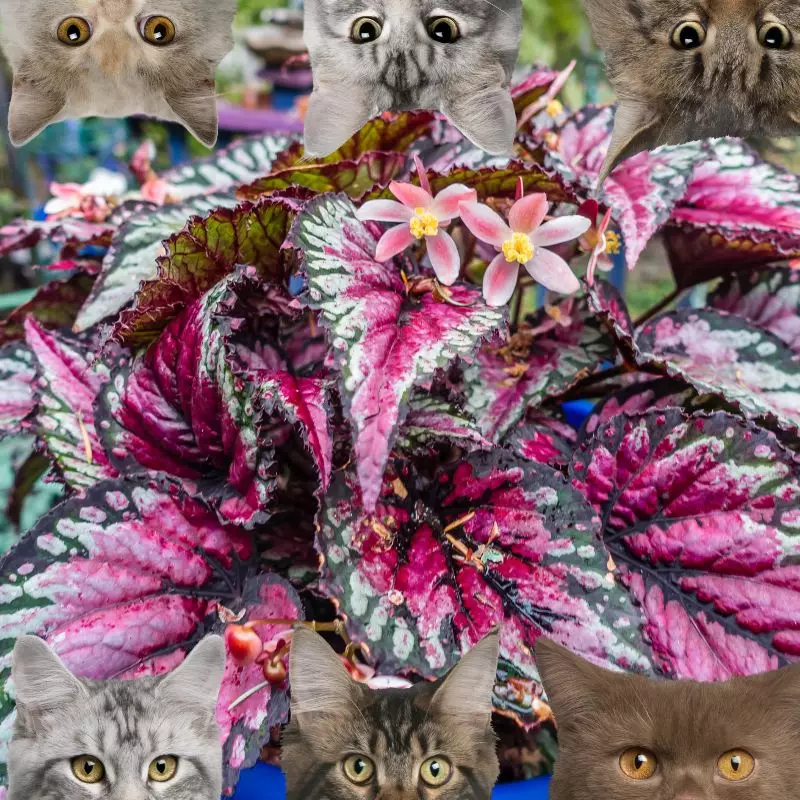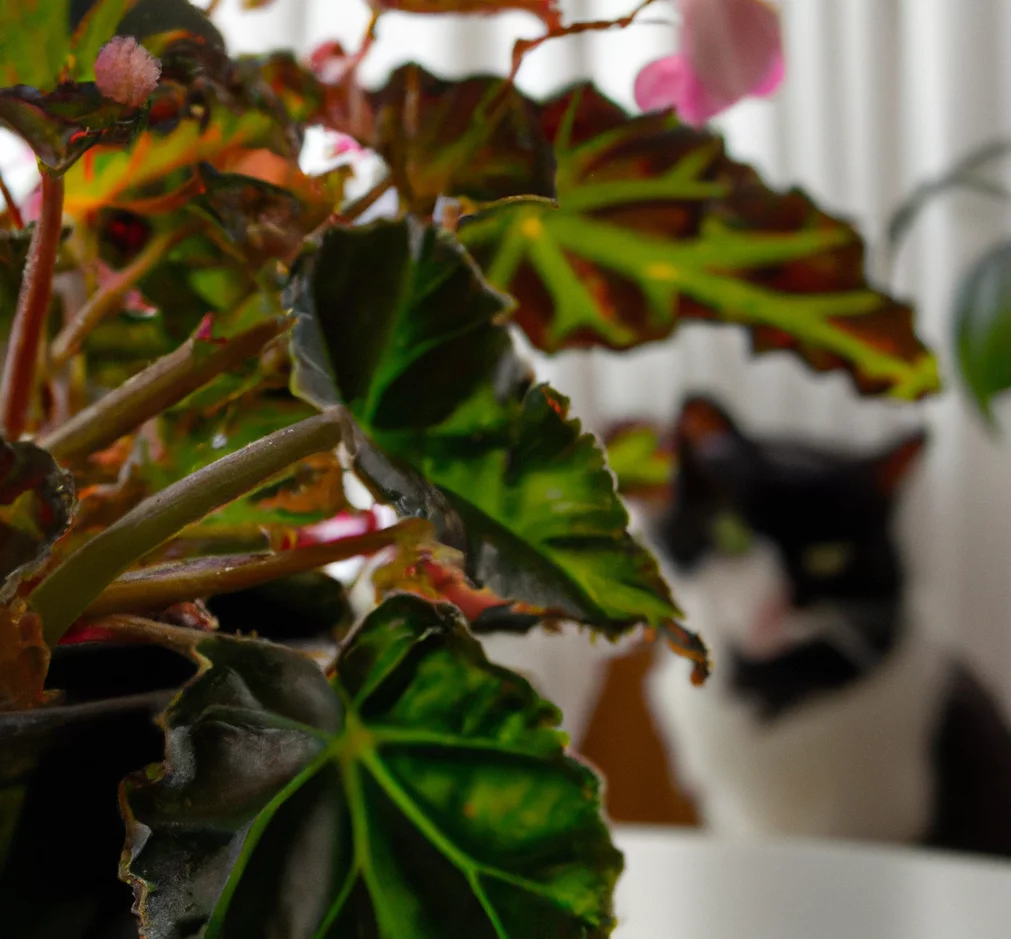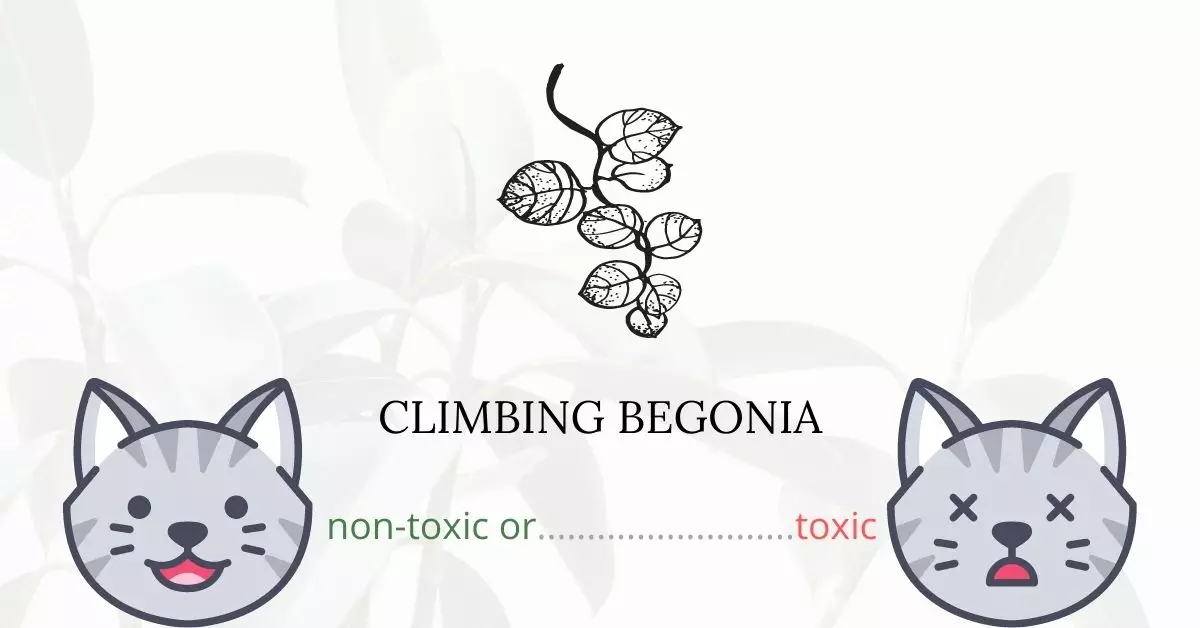Climbing begonias are not toxic to cats. While many species of begonia are harmful when ingested by cats, there are specific varieties, like climbing begonia and trailing begonia, that are not part of the true begonia genus and pose no risk. It’s essential to make this distinction for the safety of your feline friends.
This article was written in collaboration with a team of experienced DVMs (doctors of veterinary medicine). Through their insights and expertise, we are able to offer accurate and current information on the potential risks associated with various plants and their effects on cats. To further ensure the veracity of our content, we consulted high-authority websites such as ASPCA and PetMD when researching each plant, including Climbing Begonias.
Can Cats Eat Climbing Begonia?

Consuming small amounts of climbing begonia will not cause harm to your cat. Though it is included in The American Society for the Prevention of Cruelty to Animals (ASPCA) list of non-toxic plants for cats, we still have to watch the amount they have eaten.
Eating this plant excessively and on a regular basis would result in stomach problems. They are inherently carnivorous; thus their bodies lack the enzymes needed to digest plant matter.
You should also be mindful of the possibility of chemical residue in plants wherein fertilizers and pesticides might be used. If ingested, these chemical residues may cause poisoning in your feline friends.
What is Climbing Begonia?

Climbing Bigonia (Cissus discolor), often called rex begonia vine, is an evergreen, perennial, flowering, trailing plant native to Southeast Asia, particularly Java Island and Cambodia.
Its elongated heart-shaped, deep green leaves with silvery-white mottling and a rich reddish-purple underside make it a lovely garden and houseplant. The leaf looks like salsa from a rex begonia, hence the name. It is not, however, a begonia.
It’s also known as Cissus Javana because it’s native to Java Island (Indonesia). It is, nevertheless, indigenous to China, Vietnam, and Thailand.
The climbing begonia plant is a herbaceous, fast-growing climbing vine. It can reach a height of 6 to 8 feet tall and a width of 0.75 to 1 foot. Its natural habitat is tropical rainforests between 1960 and 6500 feet above sea level, where it climbs on various wooden trees.
Keeping Cats Away From Climbing Begonia

Even though climbing begonia is harmless to cats, it’s still better to keep them at distance.
Plants should be moved to a more secure area. Moving your plants to a more secure area is the simplest approach to keep them safe. Keep the plants out of reach or out of sight of your cat, such as in a bedroom. This could help safeguard your plants from your cat’s hungry mouth and paws.
Plants to Avoid For Your Cats
If you are a cat owner and unsure if the plants growing in your yard are harmful to your cats, check out this list of toxic plants for cats. You can also check our list of non-toxic plants for cats.





